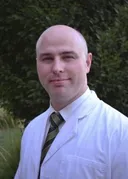The Good, the Bad, and the Ugly: The Importance of Candidate Experience

Aleksandr Davydov/123RF.com
One of the many advantages to a career in health care is the perpetual demand. No matter where you live, now or in the future, health care providers enjoy excellent job security. With the physician shortage expected to top 120,000 by the year 2030, clinicians will often have many employment opportunities to choose from and as the expression goes, “first impressions are everything”!
Employers and job seekers connect in a variety of ways--through networking, job boards, web searches, cold calls, etc. Each party wants to present their best selves in hopes of developing a long-term relationship, but when working with multiple potential hires, it’s easy to forget that the interview experience can factor just as importantly as the offer itself.
From first contact to contract negotiation, the quality of the experience as a whole needs to communicate professionalism and genuine interest. It is clear to job seekers which employers invest in the recruitment process and which do not. A candidate can also tell which experiences are mass produced with little forethought and which are tailored specifically to the situation at hand.
Good Candidate Experiences
Here are some of my most memorable interviews:
- After exchanging several emails and phone calls with a very personable recruiter, I was invited to a breakfast meeting in a hospital board room. The head chef was on hand to prepare omelettes to order. An attractive folder was laid out containing relevant information such as base salary and benefits as well as other hospital and community perks. Present at the breakfast was the recruiter, the hospital CEO, two physicians from the hiring department, and a nursing representative. We had a great time conversing about shared interests before we got down to business. A tour of the hospital and outpatient clinics followed. A formal offer letter was presented sometime later and follow up communication with the primary recruiter was excellent.
- After exchanging several emails and phone calls with another very personable recruiter, I was invited to attend an interview out of state. I received an interview itinerary including complimentary air travel and hotel. When I arrived at the hospital, I was met by an HR rep who gave me a tour of the facility and then introduced me to the lead department physician and one of the employed PAs. We had lunch together and discussed the position. I then met with an administrator to discuss numbers. The physician and PA met me again that evening to have dinner at an upscale restaurant. The next day, the hospital arranged for a real estate agent to give me a tour of the community.
- I had several Skype calls with a physician-practice owner after email introductions. He offered to fly both and wife and me to the area for an in-person interview. After multiple calls and emails, lunch and a clinic tour, the physician invited my wife, children, and me to eat with their family in their home.
Each of these experiences have a few things in common--first, communication was plentiful. In each case, multiple emails, phone calls, and even texts were exchanged, and there was never a question about what the other was thinking or planning. Second, all of them included either actual facetime or video calls. It was important to meet “eye to eye.” Body language says a lot. Third, while never inappropriately casual, all of these experiences were authentic. I felt that each one of them were genuinely interested not only in my clinical skills but also in me as a person. And finally, each potential employer apparently viewed the interview experience as an investment, and as with any good investment, a small sacrifice can pay big dividends for years to come.
The Bad and Ugly Candidate Experiences
Now, let me tell you about a few other interviews that I’ll never forget, but for entirely different reasons:
- A physician offered me a job the first time we spoke. He gave me an exciting number for a potential salary. If I wanted the job, however, I needed to sign the contract as soon as possible. When the contract came, it included a clause that required me to pay back large amounts of money if my productivity didn’t meet his approval. The job was located in a notoriously unpopular part of the state.
- A recruiter set up an evening call with a physician. I dialed the phone number a few minutes after the hour and the physician proceeded to tell me why I would never find a job as good as he was about to offer me. He wanted a 5 year commitment and proceeded to spend the next 20 minutes disparaging his last PA and admitting that he was in the process of suing the former employee. When he asked what other options I was considering, he spent another 20 minutes besmirching not only the other area I was interested in, which happened to be near him, but all of his competitors in that area. The next day, I received an angry phone call from the recruiter who said that I had made a bad impression by calling late!
- A physician asked the classic, “What is your greatest weakness?” only to go on about how he was one of the most respected and successful doctors he knew. He then said that I was welcome to fly myself down but that I’d better hurry because if I wasn’t interested, he had 100 other candidates who were.
What do the last three experiences have in common? It boils down to two things: A cringe-worthy first contact and no sign of real interest or investment in the process. The three latter examples each had many other red flags along the way. I left each one of those experiences a bit surprised and confused but also relieved that I had dodged what could have been a disastrous situation. A job interview is not unlike a first date, you generally want to make the best possible impression... And for heaven’s sake, don’t talk about your ex!
Related Posts
